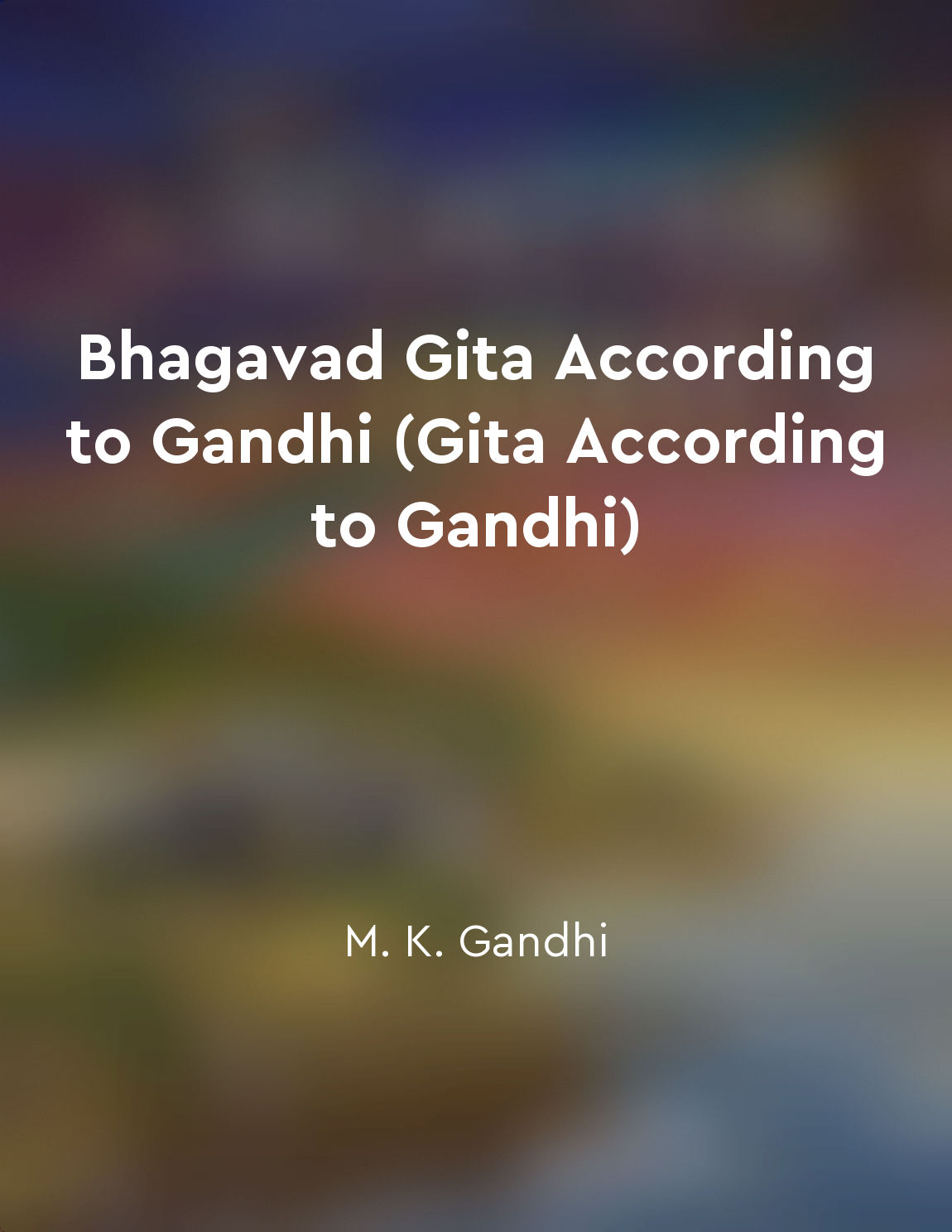The concept of karma shapes Hindu beliefs from "summary" of The Hidden Hindu by Akshat Gupta
In Hinduism, the concept of karma is deeply ingrained in the belief system that governs the actions and consequences of individuals. Karma, derived from the Sanskrit word meaning "action" or "deed," is viewed as a cosmic law that determines the cycle of cause and effect in one's life. According to Hindu philosophy, every action a person takes - whether good or bad - will have a corresponding effect, either in this life or in future lives. This idea of cause and effect is central to the understanding of karma, as it suggests that individuals are responsible for their own actions and their subsequent outcomes. Karma is not only seen as a moral code of conduct, but also as a guiding principle that influences the course of one's life. It is believed that one's thoughts, words, and deeds create a ripple effect that shapes their destiny and determines their future experiences. The concept of karma serves as a moral compass for Hindus, encouraging them to act in accordance with dharma, or righteousness, in order to accumulate positive karma and ultimately achieve moksha, or liberation from the cycle of rebirth.- The concept of karma shapes Hindu beliefs by emphasizing the interconnectedness of all living beings and the importance of personal responsibility in shaping one's destiny. It serves as a reminder that every action has consequences, and that individuals have the power to create their own reality through their choices and intentions.
Similar Posts

Accept challenges with equanimity
When faced with challenges, it is essential to maintain a sense of calm and balance. This allows us to approach difficulties wi...
Set intentions for the future
It is essential to have clear intentions for the future, as they act as a guiding force in our lives. When we set intentions, w...

Cultivating virtues like humility, compassion, and forgiveness is essential
The Bhagavad Gita emphasizes the importance of cultivating virtues such as humility, compassion, and forgiveness in our lives. ...
Apne antaratma ki suno
"Apne antaratma ki suno." yah ek bahut mahatvapurn adesh hai jo hamen Bhagwan Shri Krishna ke dwara diya gaya hai. Isse hamen y...
Arjuna's inner conflict
Arjuna is faced with a profound inner conflict as he stands on the battlefield of Kurukshetra. This conflict stems from his dut...
Death is not the end, but a transition to another realm
In the cosmic scheme, our human consciousness is a mere spark of an infinite flame. It exists within a vast expanse of the unse...

